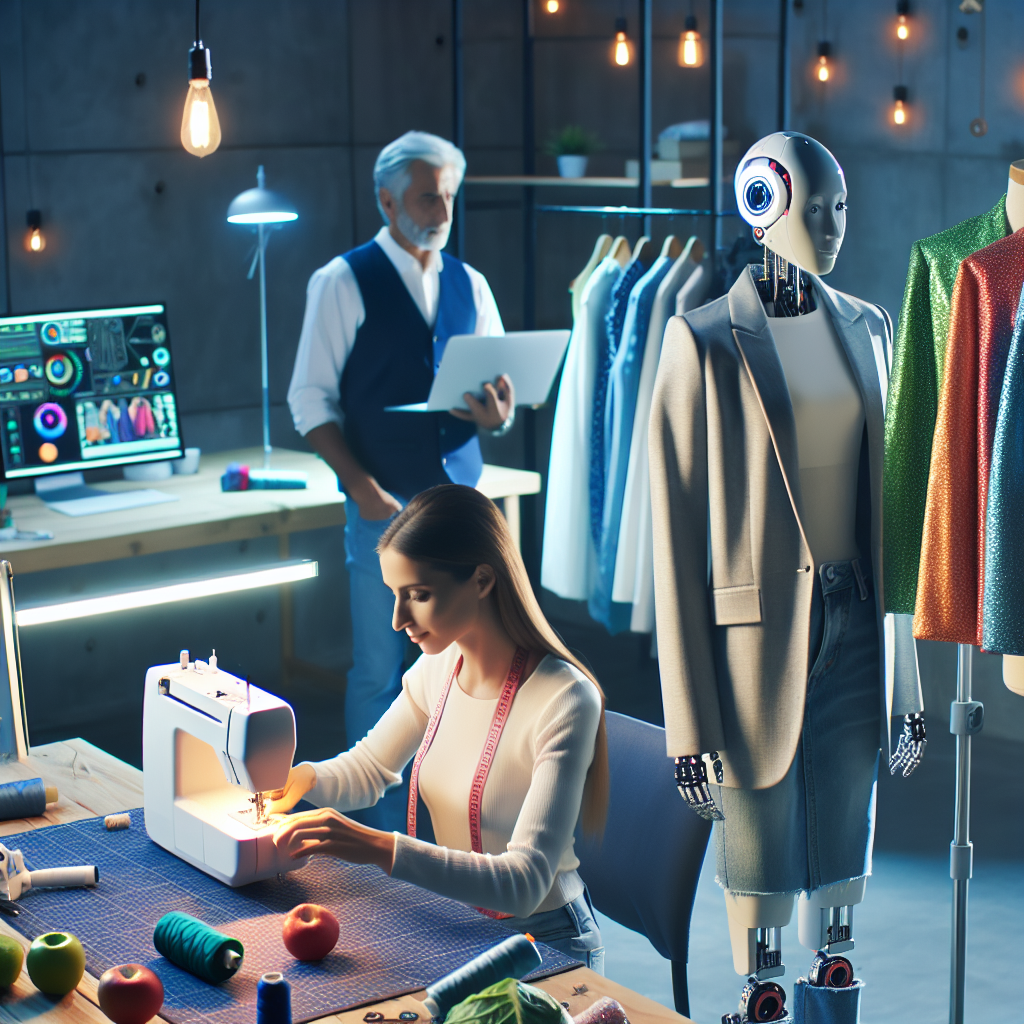The fashion industry is one of the largest contributors to environmental pollution and waste. From the production of textiles to the transportation of goods, every step in the supply chain has a significant impact on the environment. In recent years, there has been a growing awareness of the need for sustainable fashion practices to reduce the negative impact of the industry on the planet. Artificial intelligence (AI) has emerged as a powerful tool that can help fashion brands improve their sustainability efforts.
AI technology has the potential to revolutionize the fashion industry by streamlining processes, reducing waste, and improving efficiency. From designing to production, AI can be used in various aspects of the fashion supply chain to make it more sustainable. In this article, we will explore the impact of AI on sustainable fashion practices and how it can help the industry move towards a more environmentally friendly future.
1. Designing and Production
AI can help fashion brands design and produce clothing in a more sustainable way. By using algorithms to analyze data on consumer preferences, trends, and materials, AI can help designers create products that are more likely to sell, reducing the amount of unsold inventory that ends up in landfills. AI can also help optimize production processes by predicting demand and adjusting production schedules accordingly, reducing overproduction and waste.
2. Supply Chain Management
AI can also be used to improve the efficiency of the fashion supply chain. By using AI-powered analytics tools, brands can track and optimize every step of the supply chain, from sourcing materials to manufacturing to distribution. AI can help identify inefficiencies and areas for improvement, leading to a more sustainable and transparent supply chain.
3. Personalization and Customization
AI can help fashion brands offer personalized and customized products to consumers, reducing the need for mass production and minimizing waste. By analyzing data on consumer preferences and behaviors, AI can help brands create products that are tailored to individual tastes and sizes, reducing the likelihood of returns and unsold inventory. This can also lead to a more sustainable business model that focuses on quality over quantity.
4. Recycling and Circular Economy
AI can also play a role in promoting a circular economy in the fashion industry. By using AI-powered technologies, brands can better track and trace materials throughout their lifecycle, making it easier to recycle and reuse materials. AI can also help identify opportunities for upcycling and repurposing materials, leading to a more sustainable and closed-loop production cycle.
5. Transparency and Ethical Practices
AI can help fashion brands improve transparency and ethical practices in their supply chains. By using AI-powered tools to track and trace the origins of materials and products, brands can ensure that their products are made in a sustainable and ethical manner. AI can also help identify and address issues such as labor exploitation and environmental violations, leading to a more responsible and socially conscious industry.
FAQs
Q: How can AI help fashion brands reduce waste in their production processes?
A: AI can help fashion brands reduce waste by optimizing production processes, predicting demand, and designing products that are more likely to sell. By using AI-powered analytics tools, brands can identify inefficiencies and areas for improvement in their production processes, leading to a more sustainable and efficient supply chain.
Q: How can AI help fashion brands promote a circular economy?
A: AI can help fashion brands promote a circular economy by tracking and tracing materials throughout their lifecycle, making it easier to recycle and reuse materials. By using AI-powered technologies, brands can identify opportunities for upcycling and repurposing materials, leading to a more sustainable and closed-loop production cycle.
Q: How can AI help fashion brands improve transparency and ethical practices in their supply chains?
A: AI can help fashion brands improve transparency and ethical practices in their supply chains by tracking and tracing the origins of materials and products. By using AI-powered tools, brands can ensure that their products are made in a sustainable and ethical manner, and identify and address issues such as labor exploitation and environmental violations.
In conclusion, AI has the potential to revolutionize the fashion industry and make it more sustainable. By using AI-powered technologies, fashion brands can optimize production processes, reduce waste, promote a circular economy, and improve transparency and ethical practices. As the industry continues to evolve, AI will play an increasingly important role in helping fashion brands move towards a more environmentally friendly future.

